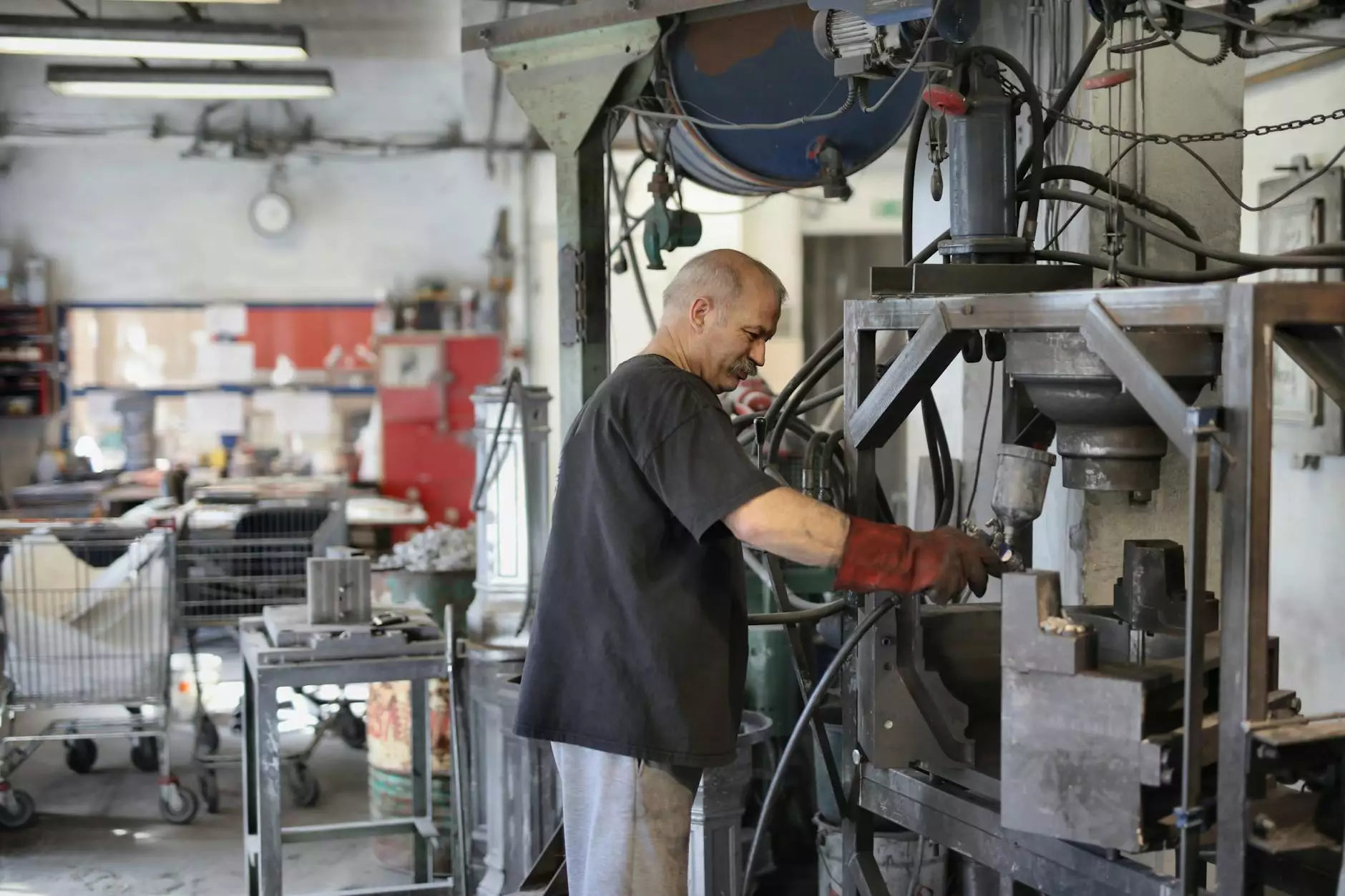Prototype Mold Makers Manufacturers: The Backbone of Innovation

The world of manufacturing is in a constant state of evolution, and prototype mold makers manufacturers stand at the forefront of this evolution. In an age where rapid prototyping is essential for product development, these manufacturers play a crucial role in turning visionary concepts into tangible products. Their expertise not only enhances design efficiency but also reduces time-to-market for new innovations.
The Importance of Prototype Mold Making
In industries ranging from automotive to consumer electronics, prototype mold making is an integral phase in product development. It allows designers and engineers to test and refine their ideas before mass production. Here are several reasons why prototype mold making is vital:
- Cost Efficiency: Developing molds for prototypes significantly reduces costs associated with full-scale production. It allows manufacturers to identify design flaws early in the process.
- Speed to Market: Quick turnaround times for prototypes enable companies to enter the market faster, giving them a competitive edge.
- Design Flexibility: Manufacturers can easily adjust designs based on testing and feedback, ensuring that the final product meets all specifications and customer expectations.
- High Quality: Advanced materials and technology used in mold making ensure high-quality prototypes that can closely simulate the final product.
Understanding the Process of Prototype Mold Making
The process of mold making involves several essential steps, each contributing to the overall quality and efficacy of the prototype:
1. Conceptualization and Design
The initial stage involves brainstorming and designing the prototype. Here, concepts are visually represented using CAD software, allowing for intricate designs to be visualized and manipulated before physical creation.
2. Material Selection
Choosing the right materials is crucial. Prototype mold makers manufacturers often use materials that can withstand the testing conditions of the prototype while still being cost-effective. Common materials include:
- Aluminum
- Steel
- Silicone
3. CNC Machining
Once the design is finalized and materials selected, CNC (Computer Numerical Control) machining is employed. This technology offers precision and efficiency in creating molds, allowing for complex geometries that manual machining cannot achieve.
4. 3D Printing
With advancements in technology, 3D printing has become an increasingly popular method for rapid prototyping. It enables manufacturers to quickly produce prototypes without the long lead times associated with traditional methods.
5. Testing and Evaluation
After making the prototype, rigorous testing is performed to assess performance, usability, and overall quality. Feedback is collected and analyzed to make further improvements if necessary.
Key Benefits of Working with Prototype Mold Makers Manufacturers
Engaging with expert prototype mold makers manufacturers can vastly enhance the product development process. Here are some of the key benefits:
- Expert Knowledge: These manufacturers bring significant experience and technical prowess to each project, ensuring optimized solutions.
- Advanced Technology: They invest in the latest technologies and methodologies for both design and production processes, ensuring high-quality results.
- Collaborative Approach: Working closely with design teams to refine prototypes ensures that the final product aligns perfectly with the original vision.
- Scalability: Once a prototype is perfected, transitioning to full-scale production becomes seamless with established manufacturing processes.
Applications of Prototype Mold Making
The applications of prototype mold making are extensive and cut across multiple industries. Here are some notable sectors that benefit tremendously from prototype mold makers manufacturers:
1. Automotive Industry
In the highly competitive automotive sector, rapid prototyping is essential for developing new vehicle models and components. Prototype mold makers enable automakers to test parts for safety and performance before mass production.
2. Consumer Electronics
The tech industry thrives on innovation. Here, prototype molds are crucial for creating smartphone casings, circuit board enclosures, and other electronic components, allowing tech firms to stay ahead of the curve.
3. Aerospace Engineering
Precision is critical in aerospace applications. Companies rely heavily on prototype molds to manufacture parts that must meet stringent safety standards while also being lightweight and robust.
4. Medical Devices
The creation of medical devices often necessitates intricate designs and materials that can withstand sterilization processes. Prototype mold makers help in developing prototypes that ensure safety and compliance with regulations.
Choosing the Right Prototype Mold Makers Manufacturers
Choosing the right prototype mold makers manufacturers can dictate the success of your project. Consider the following factors when making your decision:
- Experience: Look for companies with a proven track record in your industry.
- Technological Capabilities: Assess their machinery and technology to ensure they can meet your specifications.
- Quality Control: Understanding their quality assurance practices is essential to ensure a high standard of outputs.
- Customer Support: Engaging manufacturers who offer excellent customer service can greatly smooth the collaboration process.
Future Trends in Prototype Mold Making
As technology progresses, the domain of prototype mold makers manufacturers will continue to adapt. Key trends to keep an eye on include:
1. Increased Automation
With advancements in automation and robotics, production processes are expected to become faster and more cost-effective, enhancing overall efficiency.
2. Sustainable Practices
The industry is moving towards more sustainable practices, focusing on recyclable materials and eco-friendly techniques to minimize environmental impact.
3. Virtual Reality (VR) and Augmented Reality (AR)
Utilizing VR and AR will allow design teams to visualise products in a virtual environment, leading to improved design decisions and faster prototyping iterations.
Conclusion
In summary, prototype mold makers manufacturers are indispensable partners in the product development landscape. Their ability to efficiently transform ideas into prototypes fosters innovation across various industries. By leveraging advanced technologies and maintaining a focus on quality, they pave the way for successful product launches and market readiness. Whether you are in the automotive sector, consumer electronics, aerospace, or medical devices, collaborating with proficient mold makers can significantly enhance your development cycle and end-product quality.
As businesses like DeepMould step forward to provide robust solutions in metal fabrication and mold making, the future shines bright for manufacturers and innovators alike. Embrace the capabilities of prototype mold making today to ensure your concepts become reality!









